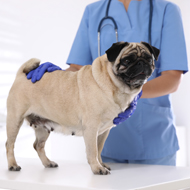Vets who have seen clinical cases of atypical myopathy are urged to fill in a short questionnaire.
Vets and horse owners urged to fill in short questionnaire
Veterinary professionals who have seen clinical cases of atypical myopathy in 2014 are being asked to help in a collaborative research project into the disorder.
Horse owners whose animals have been affected by the condition are also being asked to help.
The research, led by the Animal Health Trust (AHT), aims to investigate the geographical distribution and clinical particularities of atypical myopathy in the UK and Ireland.
In 2014, the UK reported the highest number of atypical myopathy cases in Europe with alarming mortality rates. Therefore, the AHT say, a UK based investigation is essential to understand the particularities of the disease in this country.
Atypical myopathy causes the destruction of muscle tissue, including the heart. Clinical signs include dark coloured urine, muscle tremors, breathing problems and anorexia. The debilitating and fatal disease disease is caused by the ingestion of sycamore seeds, commonly known as "helicopters" as their shape enables them to travel several years away from where the trees are located.
Vets who have seen clinical cases of atypical myopathy in 2014 are urged to fill in a short questionnaire providing details of the affected horse’s management, pasture details and clinical signs.
Horse owners whose horses have suffered from the disease can also help the AHT's research into the disease by providing similar information. For the horse owner survey please click here.
By collecting as many details as possible on the disease, the veterinary charity hopes to accelerate the research into the condition, furthering the understanding of the disease and improving the poor prognosis that it currently has in the UK.







 The latest
The latest 
